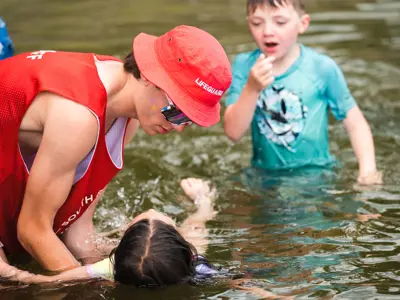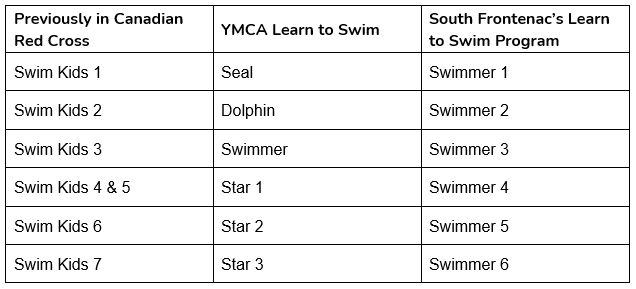By focusing on personal growth and development, campers are provided with the opportunity to learn new skills, try new things, gain confidence by targeting a number of different learning styles to grow and flourish in ways that will benefit them long-term. Activities emphasize social development, character development, leadership, teamwork and sportsmanship. The goal in each activity is to build self-esteem by encouraging children to feel capable and confident in their abilities. Our Day Camp is an outdoor, beach front experience. We are a tech-free zone and ask campers to leave their devices at home and reconnect with their natural curiosity and playful side.
Pro tip for registration
Our Day Camp does not automatically include Swim Lessons but campers will get recreational/free swim time supervised by a lifeguard. Swim Lessons are an additional program and must be registered for in addition to Day Camp or as a standalone course.
Our Day Camps are offered in one-week sessions, whereas our Swim Lessons are offered in two-week sessions. If you would like your child to participate in both programs concurrently, please plan ahead to ensure the sessions align.
- Session one of Swim Lessons run concurrently with weeks one and two of Day Camp.
- Session two of Swim Lessons run concurrently with weeks three and four of Day Camp.
- Session three of Swim Lessons run concurrently with weeks five and six of Day Camp.
- Session four of Swim Lessons run con currently with weeks seven and eight of Day Camp.














